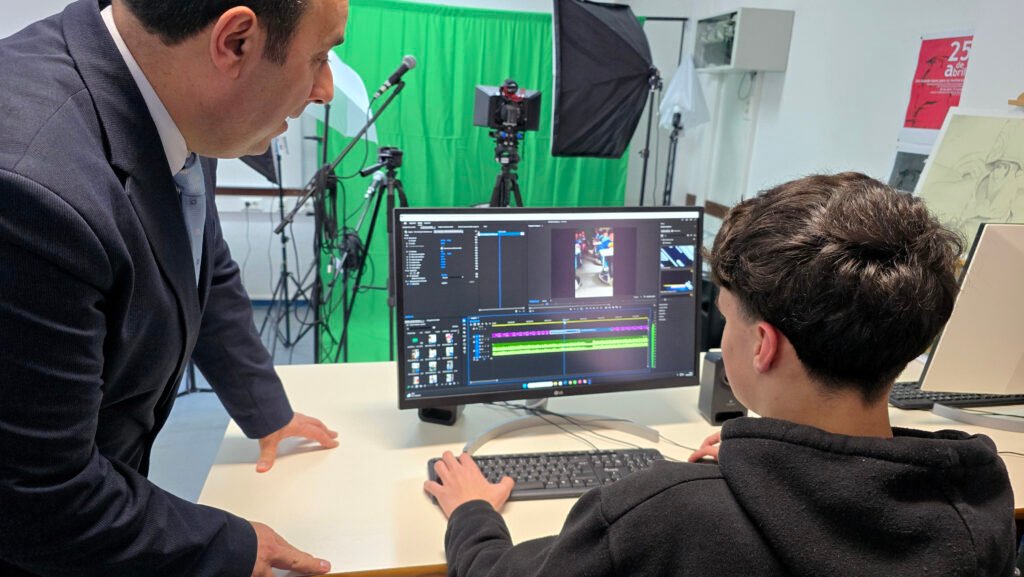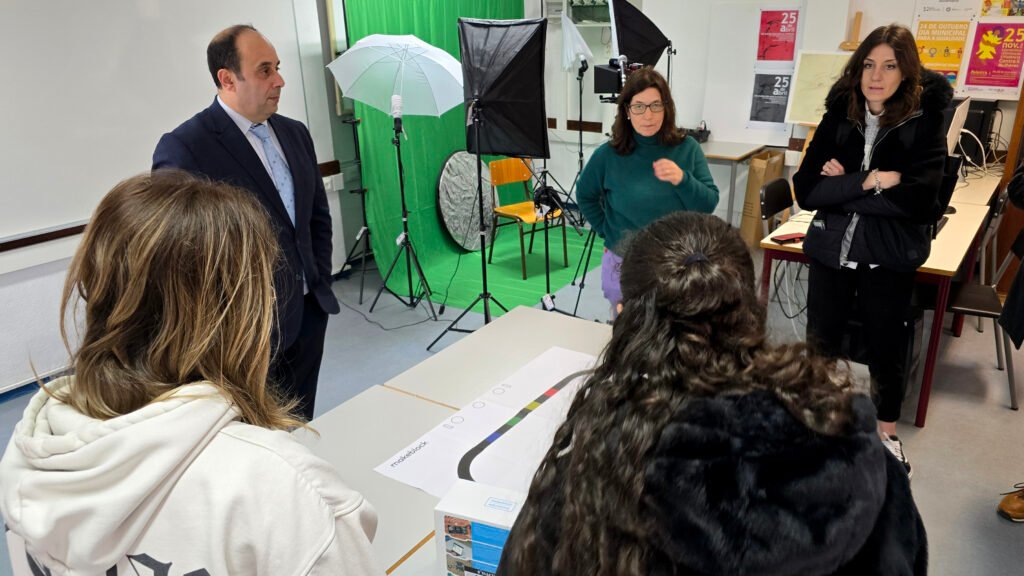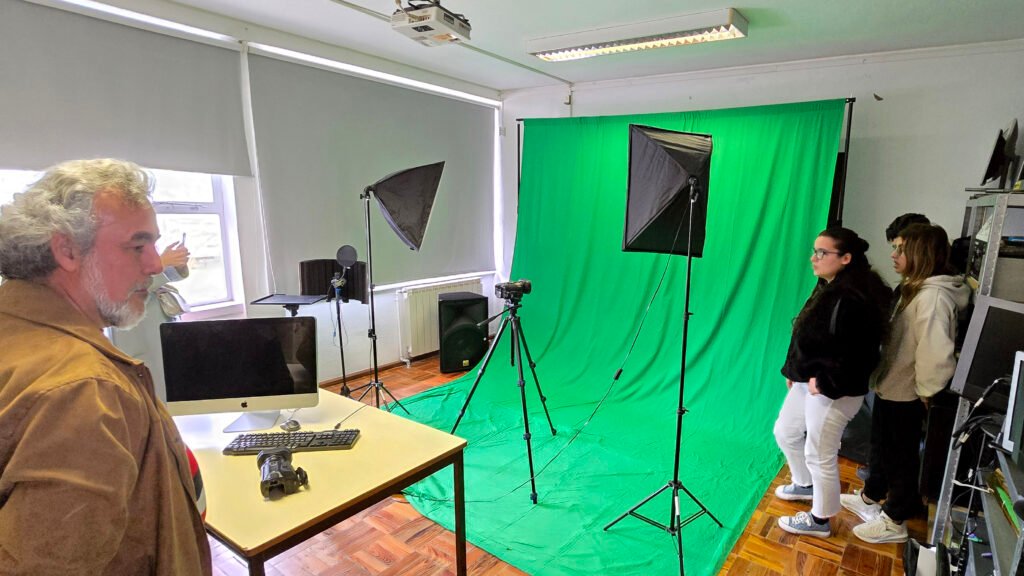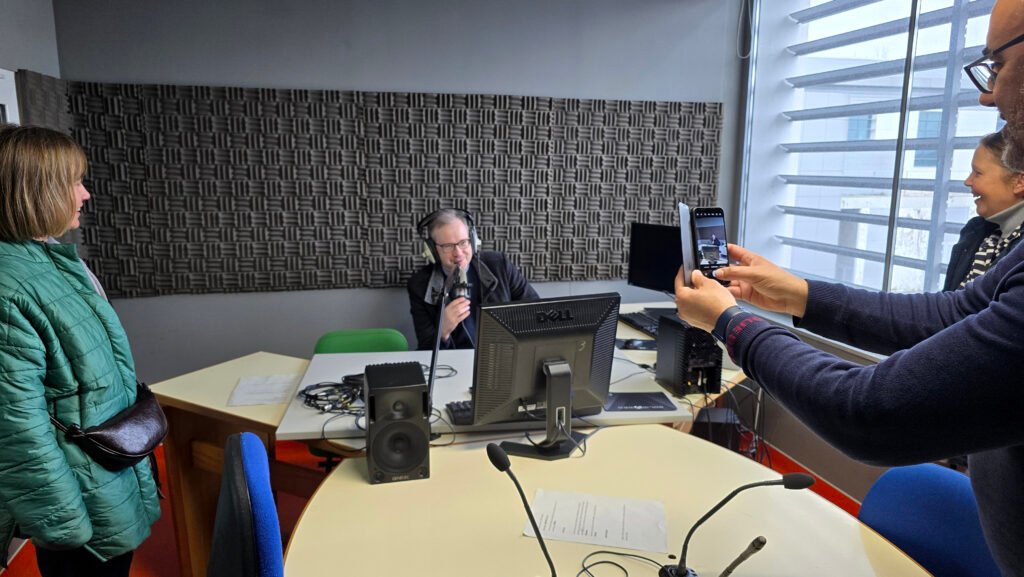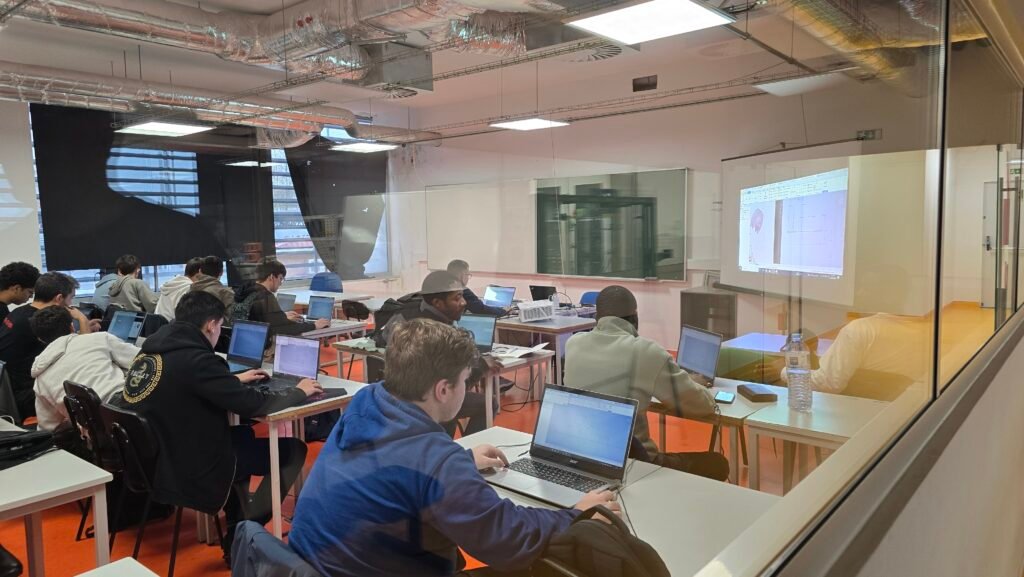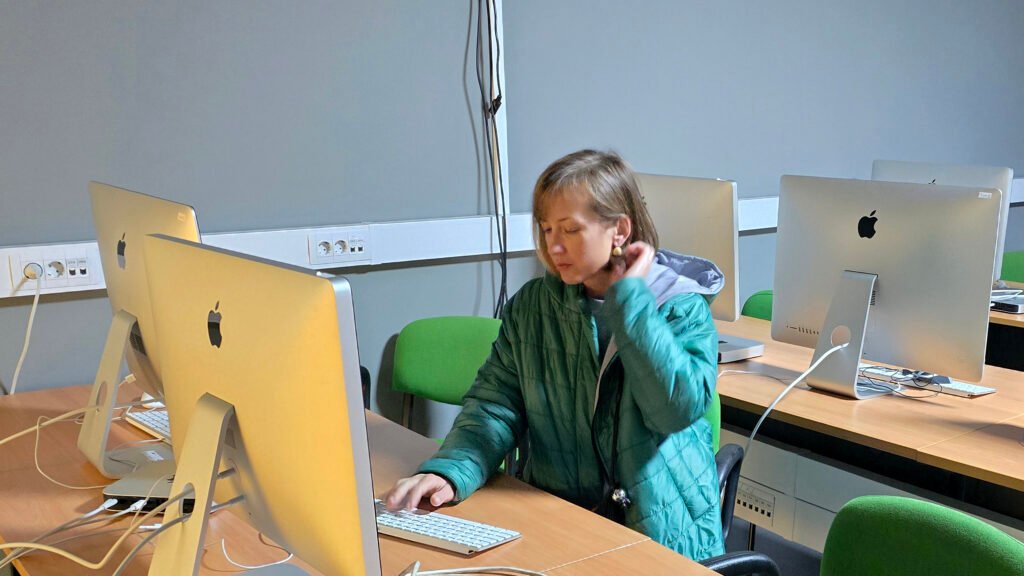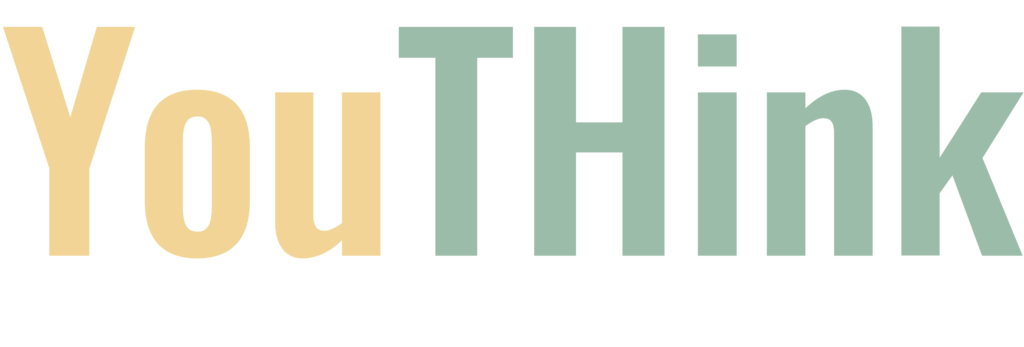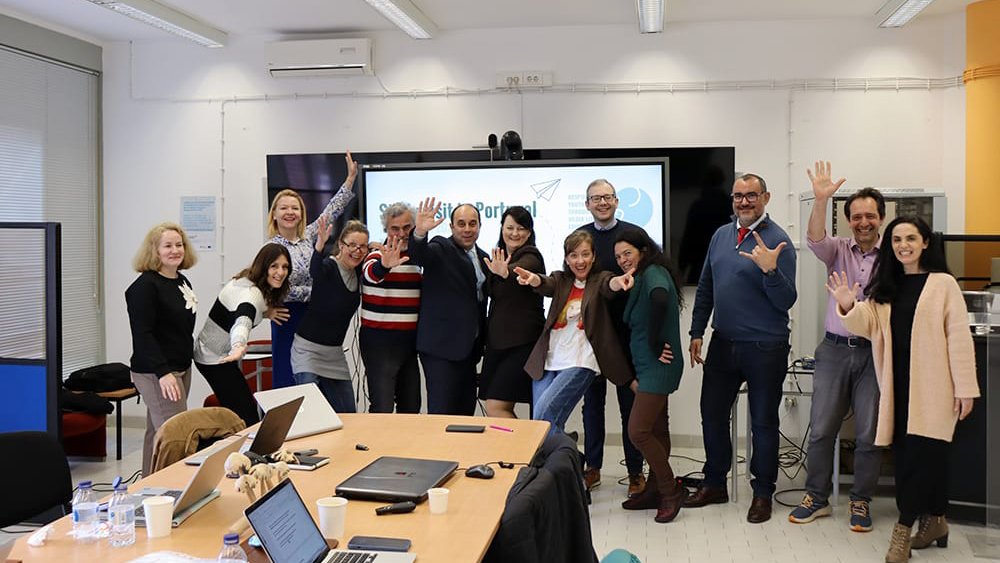On 20 and 21 March, the results of the focus groups and surveys carried out previously in each partner country were analysed and discussed. In addition, visits were made to the ESTA laboratories and to the Nuno de Santa Maria School Group.
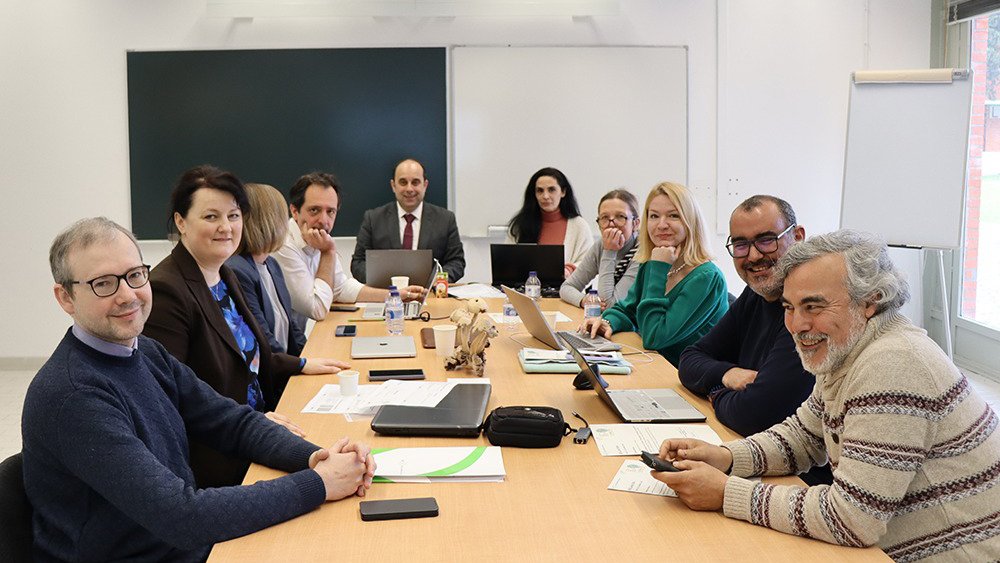
Youth Media Literacy Education: Experience, Challenges, and Solutions
Young people overestimate their ability to recognize disinformation but struggle to evaluate information sources and distinguish facts from opinions. This is one of the key insights shared by the YouTHink project partners from Lithuania, Slovenia, Portugal, Italy, and Switzerland, who met in Portugal on March 20-21, 2025 under the European Union’s Erasmus+ programme. At the event held at the Polytechnic University of Tomar, experts and youth representatives discussed how to effectively develop young people’s media literacy skills, using innovative teaching methods and the latest technologies that are crucial for evaluating and creating reliable online content.
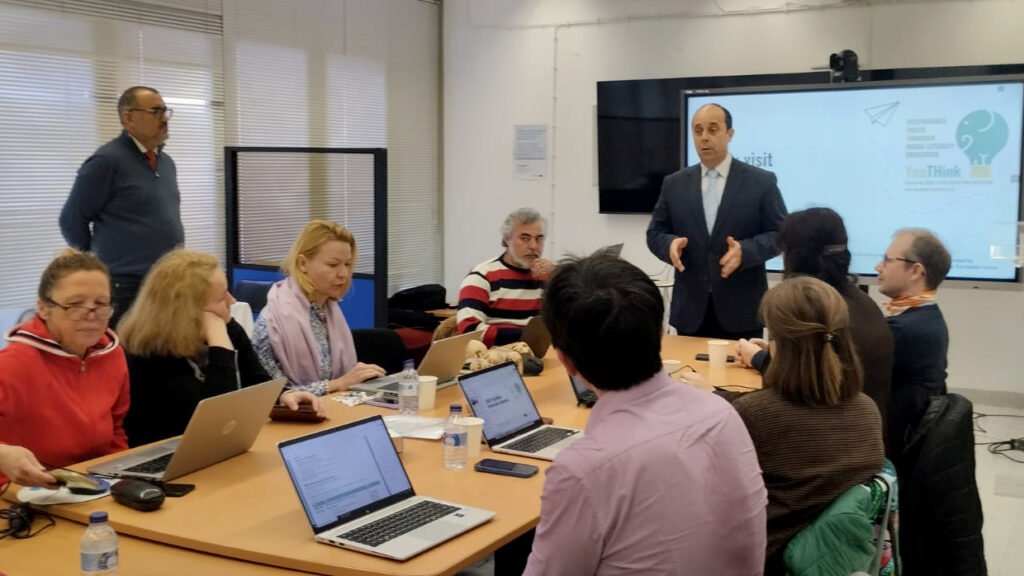
Analysis of Creative Workshop and Youth Survey Results
During the meeting, partners presented creative workshops organized in their respective countries, inviting experts from various fields: youth workers, education institution representatives, NGO members, journalists, businesspeople, etc. The creative workshops were held in Lithuania, Slovenia, Portugal, Italy, and Switzerland. Youth surveys were also conducted in these countries to investigate how young people (ages 14-19) understand and perceive media literacy. These activities aimed to comprehensively analyse the topics most relevant to young people, determine whether young people have sufficient media literacy knowledge and skills, and identify the most effective technological solutions and methods to help develop young people’s skills for responsible and ethical online behaviour.
The creative workshops addressed various challenges, from the most relevant topics to methods of reaching young people through non-formal education and engaging teaching formats. Partners agreed that training should be attractive: instead of traditional topics such as “Artificial Intelligence Basics,” it was suggested to use gamified learning and apply everyday life scenarios, such as doing homework, preparing for holidays, creating social media content, or using artificial intelligence tools.
Common challenges in partner countries include the recognition and evaluation of misinformation and disinformation. Young people often trust information published online, rely on AI-generated text, and tend not to verify facts, often neglecting to consider the disclosure of personal and confidential information to generative models. Additionally, it was discussed that social networks can have a negative impact: young people tend to present themselves better than they are, compare themselves to other social network users, which leads to feelings of inadequacy and emotional pressure.
Research revealed that young people overestimate their media literacy skills. A survey of over 200 young people in Lithuania, Slovenia, Portugal, Italy, and Switzerland showed that while most claim to be able to recognize disinformation, they lack the skills to critically evaluate information sources and distinguish facts from opinions. “Young people often rely on intuition rather than fact-checking tools,” says Laura Grinevičiūtė (Public Internet Access Points, Lithuania), who leads the research activities. The research results indicated that more attention should be paid to the media literacy education of younger youth.
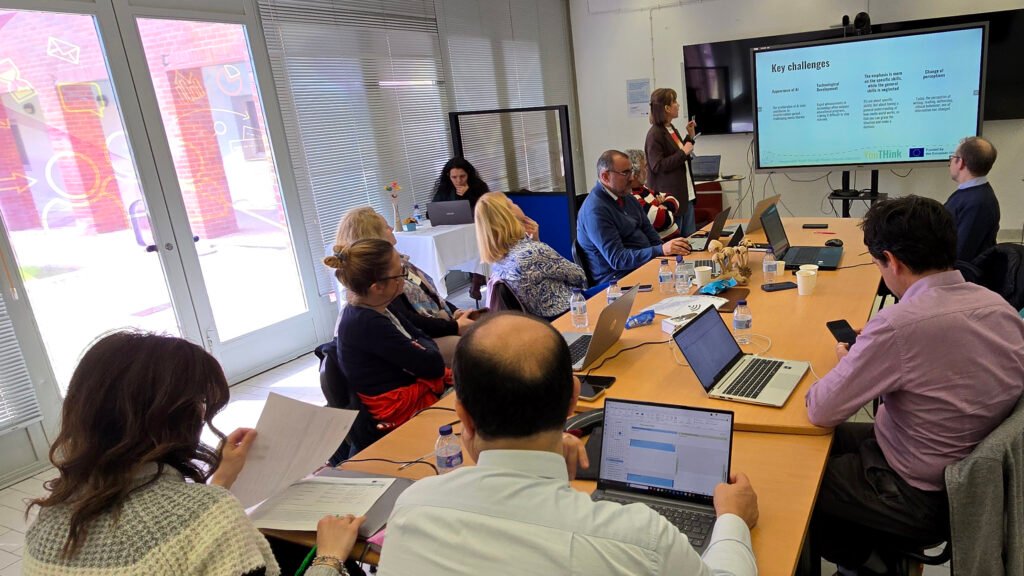
Insights from Professionals Working with Youth
From the project’s inception, partners have sought to involve representatives of the target groups: both young people and youth workers are involved in creative workshops and other project activities, becoming acquainted with project activities from the outset and making valuable contributions to the development of training programs.
During the study visit in Portugal, two youth workers from Lithuania, who plan to participate in the pilot training, were present. Aušra Nedzinskienė, a volunteer in the project and the head of the Druskininkai Youth Activity Centre, introduced the event participants to their activities and the challenges of working with young people, sharing her experience on how to encourage the self-expression, initiative, and cooperation of youth informal groups and organizations in finding attractive and relevant activities for young people.
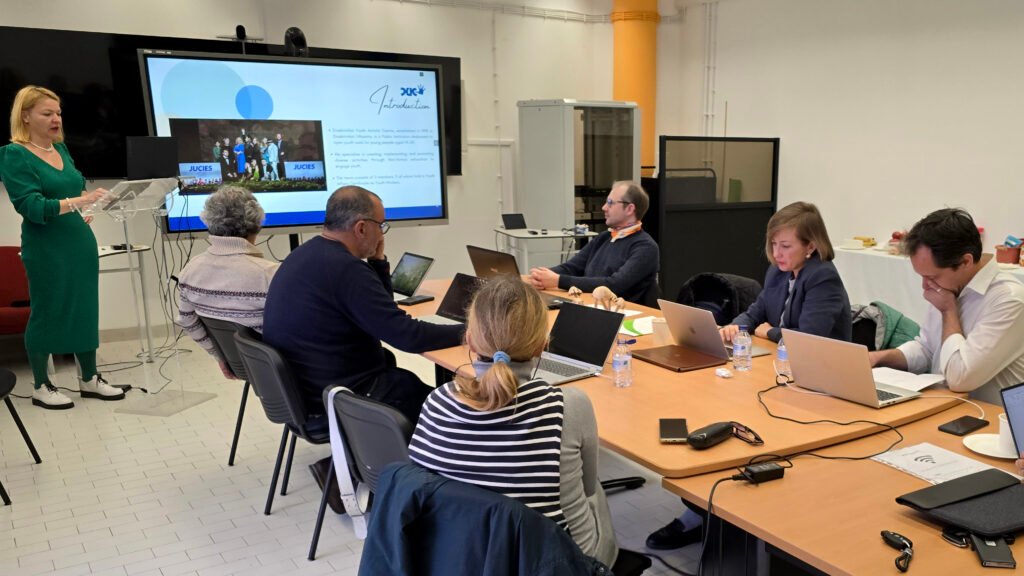
Kristina Vainauskienė, who plans to participate in the pilot training sessions of the project, joined the YouTHink meeting discussion. In mid-March, she arrived at Tomar, Santa Maria dos Olivais Secondary School under the Erasmus+ KA1 program to share her experience. Kristina works with older children, teaching them computer science lessons and leading non-formal education groups. At the meeting, she shared her experience and tips on the challenges of working with young people.
Exploring Ways to Engage Youth
During the meeting, partners shared various experiences, from non-formal to formal education. Each partner, summarizing their country’s activities, suggested topics for training programs and the latest technological solutions, focusing on the content generated by AI generative models, its responsible creation and use, and integration into young people’s daily activities.
Professionals working with youth suggested organizing training using real-world tasks and collaborating not only with youth organizations but also with schools where practice is used, and young people complete various tasks to earn social hours. This could help young people not only improve their own media literacy level but also develop the knowledge and skills of other young people. To encourage youth engagement, it was suggested to integrate various certificates or badges for intermediate achievements.
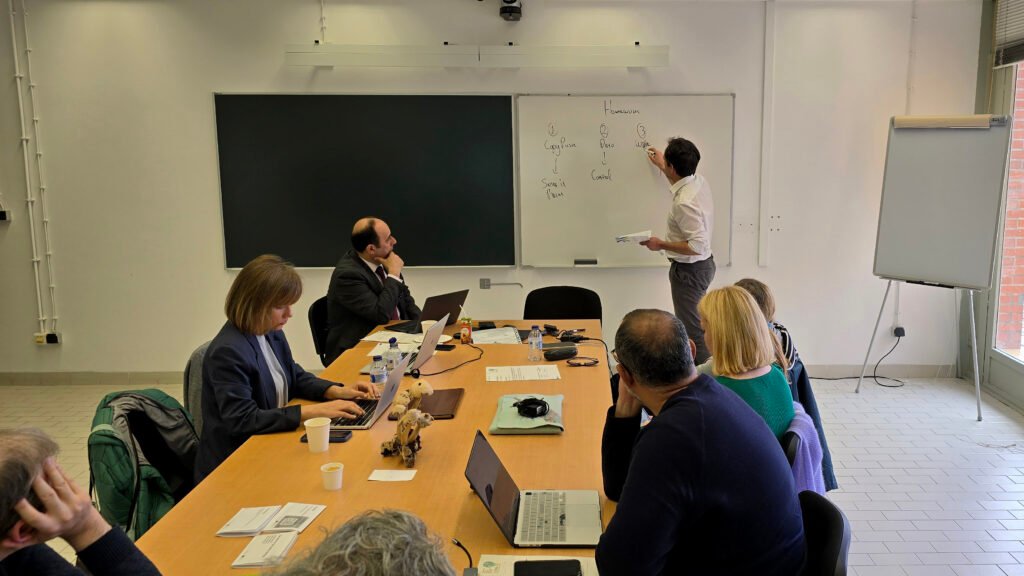
Sharing IPT Experience and Visits to School and IPT Laboratories
During the visit, YouTHink partners visited AENSM – Group of Schools Nuno de Santa Maria, where three students, along with their teachers, presented their extracurricular activities, such as photography, video editing and montage using AI solutions, and robotics. The young people shared insights into their own media literacy knowledge and time spent online. The young people admitted that they spend less time on social networks but more time playing various online games, for example, during breaks, while waiting in lines, or in their free time. Although they spend a lot of time online, one of the participants mentioned reading printed books and critically evaluating online content and checking information sources. The young people acknowledged using AI solutions, especially for video editing and homework.
IPT shared their experience on how they integrate artificial intelligence generative models into training activities and gave a lecture to partners on AI basics and applications. IPT also organized a visit to their laboratories, where partners became acquainted with the integration of the latest technologies into youth education activities, 3D modeling, practical application and testing of robotics, audiovisual content creation, and preparation for these activities.
